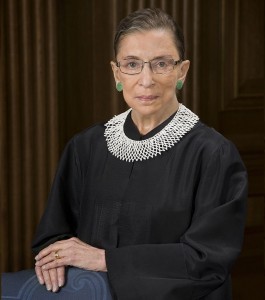 Yesterday, the U.S. Supreme Court handed down a historic ruling in a case involving two companies run by owners who identify as Christian and who oppose abortion-inducing contraception, but the ruling did not come without strong dissent.
Yesterday, the U.S. Supreme Court handed down a historic ruling in a case involving two companies run by owners who identify as Christian and who oppose abortion-inducing contraception, but the ruling did not come without strong dissent.
The 5-4 decision came as a result of the two cases in Burwell v. Hobby Lobby Stores, Inc. and Conestoga Wood Specialties Corp. v. Burwell, in which the high court struck down the Obamacare contraception mandate for “closely held corporations.”
As previously reported, the court determined that companies are not required to provide contraception coverage if such provisions violate the owners deeply-held religious beliefs.
Hobby Lobby’s owners identify as evangelical Christians who do not object to contraception in general, but to drugs that may result in abortion. Likewise, the owners of Conestoga Wood Specialties Corp. believe that providing abortion-inducing drugs would violate their sincerely-held Mennonite beliefs, stating that it “is an intrinsic evil and a sin against God.”
Justice Ruth Bader Ginsberg wrote a separate 35-page dissent from the majority opinion and lambasted her fellow justices, calling the ruling one of “startling breadth”.
Ginsberg bemoaned how women would now be obligated to pay out of pocket to attempt to prevent, and as a result in some cases, destroy life, instead of their bosses.
In an example, Ginsberg expressed concern over the cost of an intrauterine device, which is implanted into the uterus to prevent conception long-term, and how expensive it would be for employees to be paying for these types of devices.
“It bears note in this regard that the cost of an IUD is nearly equivalent to a month’s full-time pay for workers earning the minimum wage,” she wrote, citing a brief from the Guttmacher Institute, a pro-abortion public policy group.
In her dissent, the justice also asserted that she did not believe that the arguments made were “substantial” enough as required by the Religious Freedom Restoration Act 0f 1993.
Ginsberg stated, “I would conclude that the connection between the families’ religious objections and the contraceptive coverage requirement is too attenuated to rank as substantial.”
Her belief that the correlation between the requirement of Christian-owned and operated businesses to provide contraception drugs to employees who wanted to prevent pregnancy, and in other cases, cause the death of an unborn child was weak.
“The requirement carries no command that Hobby Lobby or Conestoga purchase or provide the contraceptives they find objectionable,” she wrote. “Instead, it calls on the companies covered by the requirement to direct money into undifferentiated funds that finance a wide variety of benefits under comprehensive health plans.”
Sonia Sotomayor, Elena Kagan and Stephen Breyer, partially joined Ginsburg in her dissent.
Some now are saying that Ginsberg’s scathing rebuke could actually end up backfiring by being used to argue for even more religious-based exemptions in the future, beyond what the court intended.
“If the dissenters had simply taken Kennedy at his word in his concurrence, and simply agreed it was narrow, the lower court judges would have had to work very hard to say this applies broadly,” said Eric Segall, a professor at Georgia State University College of Law. “Now they can just cite Ginsburg, and say she thought it applied broadly.”
The majority ruling applies to companies that are “closely held corporations,” which the IRS defines as one that has “more than 50 percent of the value of its outstanding stock owned (directly or indirectly) by five or fewer individuals at any time during the last half of the tax year,” and that “is not a personal service corporation.” This form of corporation is thought to make up about 90 percent of the companies in the United States.
Ruth Bader Ginsburg was appointed to the U.S. Court of Appeals for the District of Columbia by President Jimmy Carter in 1980, and later to the U.S. Supreme Court by President Bill Clinton to fill the seat vacated by Justice Byron White in 1993.
Justice Ginsberg’s full dissent can be viewed here, starting on page 60.
Become a Christian News Network Supporter...


